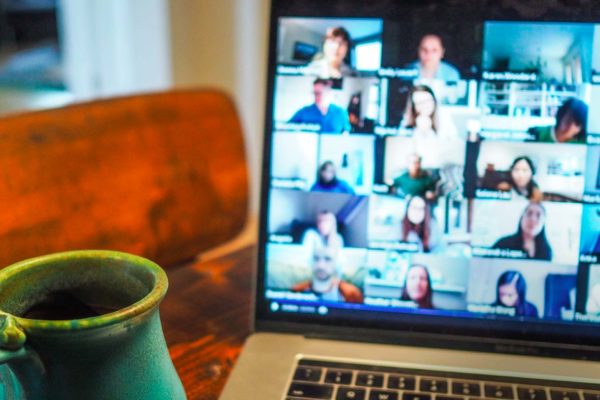[Publishing during a pandemic] Online events: Brave new virtual world
This article is written by Piet van Niekerk and Pierre de Villiers.
According to the FIPP 2019 ‘Events in Media’ report, 78 per cent of millennials choose to spend money on a desirable experience rather than a material product. This is driven by the growth of the so-called “experience economy.” Where it was assumed that this economy would be built on face-to-face experiences, the Covid-19 crisis has introduced a new reality – a virtual world.
One of the first comprehensive reports to explore this sphere is Condé Nast Britain’s insight report ‘Looking Beyond Lockdown – Changing Consumer Behaviour in Response to Covid-19’, which was released in early June. Speaking to 2,500 consumers and hosting online interviews with proprietary communities, one of the report’s findings was that, while a pivot to virtual events has impacted ticket prices and revenue, consumer uptake is high and sponsorship opportunities abound. In fact, at home theatre and cinema screenings, as well as conferences, seminars and workshops, were the most consumed virtual experiences in the six weeks leading up to the last week of May.
As one example, the report references the Met Gala, Vogue magazine’s annual fundraising gala for the benefit of the Metropolitan Museum of Art’s Costume Institute in New York City. While the physical event was postponed until next year, the virtual event held in early
May reportedly generated €22.79M in earned media value. The event was given new life with Vogue’s YouTube livestream ‘A Moment With the Met’.
This is one of many large and prestigious recent events proving that consumers are happy to pay for virtual stimulation. It also showcased that people are coming to terms with the reality that packed theatres and auditoriums will most likely not be part of the new normal any time soon.
In fact, the report finds that consumers are most likely to pay for virtual entertainment and educational events. Ninety-two per cent of respondents have already engaged with a virtual seminar and/or performance in the last weeks of May and 75 per cent planned to maintain or increase their spending on in-home entertainment in the next 12 months.
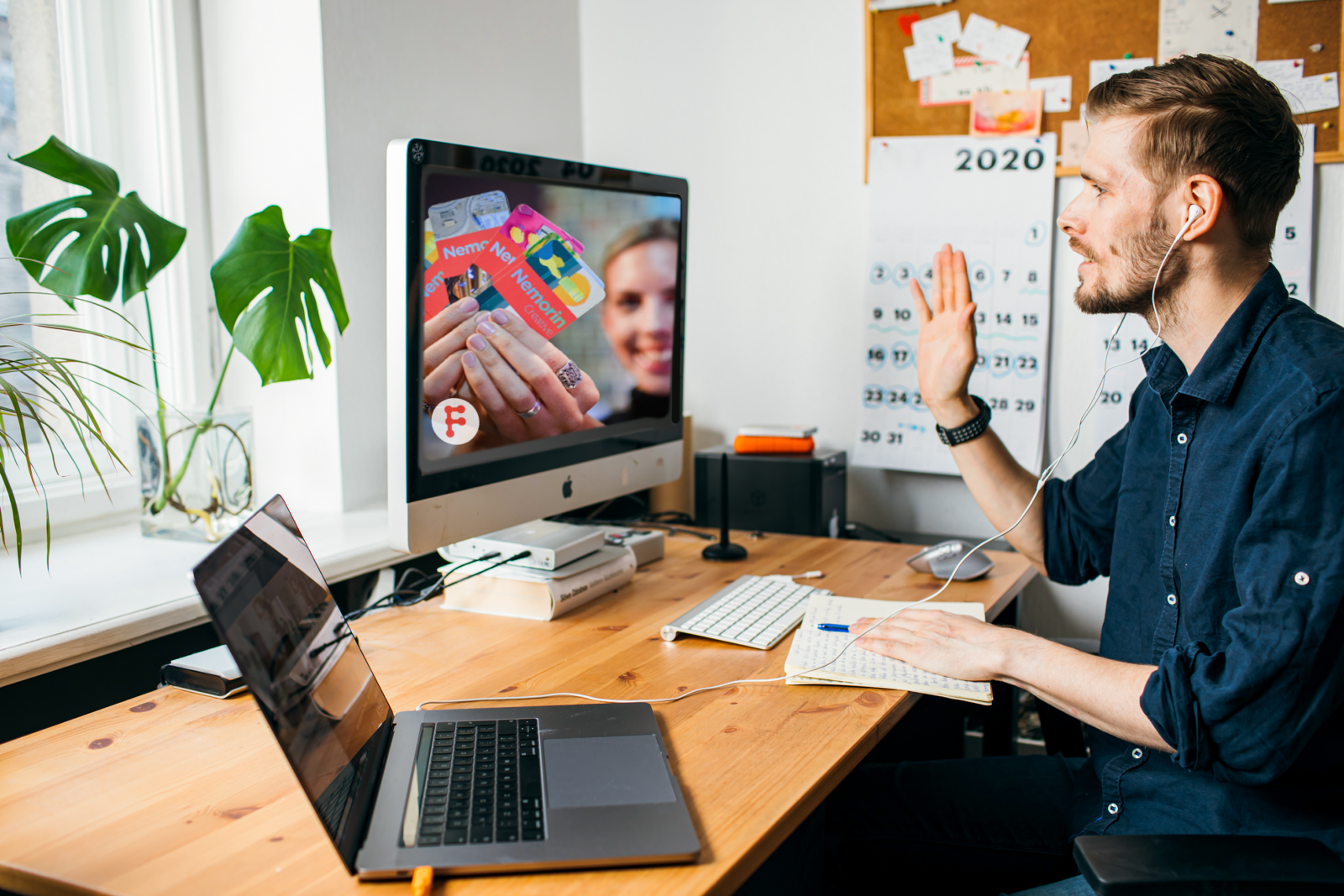
Getting close to audiences
But not all events hosted by media titles have been conceived to generate direct revenue. Brand building and fostering a close relationship with audiences can be considered just as important. Condé Nast brand Teen Vogue recognised this during the early phases of the Covid-19 lockdown when they decided to host virtual versions of the prom and commencement this year.
On 16 May, Teen Vogue hosted a virtual prom with a long list of special guests and performers, from actors to musicians to TikTok stars. As Folio reports, demand has been so high that it had to cap the number of high schools joining.
On 31 May, Teen Vogue opened its platform for a virtual high school commencement. Like the prom, this was a free event and, according to the brand, offered “inspiration and ‘upliftment’ from some of our favourite celebrities, noteworthy figures and inspiring young members of this year’s graduating class”.
The scope for online events seems to be endless. Take this example. Active Interest Media brand for outdoor enthusiasts, Backpacker, didn’t want social distancing to prevent its community from enjoying traditional outdoor activities like camping and campfires. It launched a virtual campfire on Facebook Live with activities such as a sing-along to ‘live’ music. It was so popular that it was followed up with a free day-long Camp-In festival on 16 May. The event featured guided yoga and ‘mountain fitness’, art, gear and cooking demonstrations, author readings and, again, live music.
Online events: move fast
FIPP members from around the world attest to the reality that while face-to-face events had to be postponed or cancelled for the duration of at least 2020, everyone moved fast to find ways to create practical – and when possible, profitable – online events. From Brazil, the Association of Magazine Publishers (ANER) reported that there has been “an explosion in the number of webinars, ‘live’ (online) events and the creation of course platforms,” such as Globo Condé Nast and Exame, a fortnightly magazine specialising in economics, business, politics and technology, who both created educational and mentoring platforms under subscription.
Many other publishers in Brazil followed suit and are now investing in online initiatives that encourage digital projects with a positive approach. All of these are linked to, or sponsored by, brands. The newspapers O Globo and Valor have both organised “large-scale events that were successfully held on-line”. These examples, said ANER, are not merely an overhaul of webinars and e-events but another iteration of the acceleration seen towards digital transformation for many publishers.
The upside for media companies is that for events – live or virtual – the number one priority to keep in mind is that most media companies already possess the right tools to move into events — and turn a profit while they’re at it.
FIPP’s ‘Innovation and Media 2020-21 World Report’, produced by Innovation Media Consulting, points out that most publishers already have a well-defined target audience, existing channels for promotion, a loyal following and bags of relevant content as well as expertise.
For many media companies, events have been an important pillar of their greater income diversification plans. As experienced by FIPP in its own recent operations, other media companies such as The Information or Digiday held more than 40 profitable media events last year.
Many of these events have since been moved online, such as FIPP’s 43rd World Media Congress, which is going online for the first time in its 95-year-old history, running over four weeks from 2 to 30 September this year. FIPP’s annual Digital Innovators’ Summit (DIS) will be incorporated with the Congress and will also see the return of the Worldwide Media Marketplace (WMM) and the Rising Stars and Insight Awards sponsored by UPM Communication Papers.
Creating a digital handshake
The world of diplomacy, by its very nature, depends heavily on networking. This creates a Covid-related problem for Embassy, the London-based magazine and events company that specialises in keeping diplomats connected.
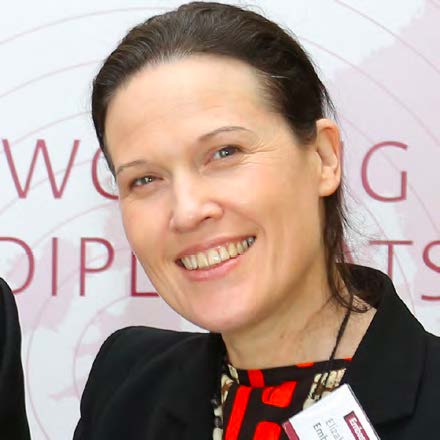
“We have 10 events a year that put diplomats in the same room as politicians, civil servants and businesses, but because of the pandemic we’ve had to move everything online for now,” says Elizabeth Stewart, editorial and programme director.
“The challenge becomes how do you recreate ‘meeting on the margins’ – ad hoc one-to-one discussions on the fringes of a conference where great networking takes place. We’ve been exploring video platforms that offer break-out rooms that mimic this essential part of diplomatic life. And the digital format means our guest list is not limited by geography. “
Another challenge facing Embassy is how to cover diplomatic receptions – usually lavish affairs with banquets, live performance and speeches – which embassies have started to stream live on Facebook and Instagram.
“Our website and social media platforms have become even more important as a way to alert diplomats when to log on and do a Zoom toast. We want to make sure London’s diplomatic corps keeps networking until they can meet face to face again.”
Online opportunities
Planning virtual events does differ from face-to-face events in some important ways, warns FIPP’s Chief Content Officer, Cobus Heyl.
“There are a different – and exciting – set of opportunities presented by online events and we should explore this to its full potential. To equate a virtual event to physical event is daft, much like equating a printed magazine to its social media channel.”
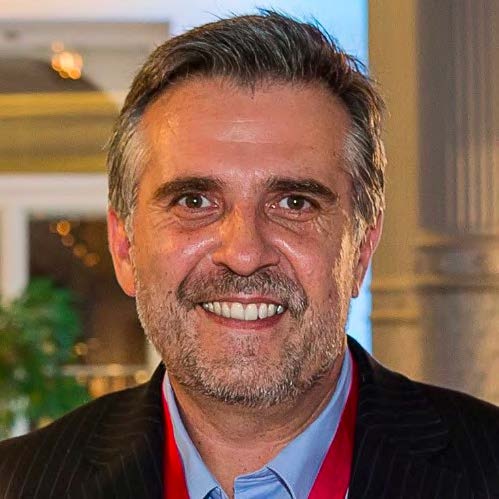
As one example, Heyl pointed out the planned two-day physical congress with 90 speakers can now be broken up into standalone slots over four full weeks.
“I don’t know anyone who would want to sit through speaker after speaker for hours on end,” he added. “In the way consumption of most news happens at the atomic level (unit of content), we believe similar principles will apply here.
“Breaking the content into consumable ‘chunks’ means users are not required to spend every moment of the working day staring into a screen watching someone else at work.”
Another plus is speaker times can now be scheduled in such a way as to consider FIPP’s global audience’s time zones. This will optimise opportunities across the board for attending the live, interactive sessions. For example:
- Sessions in the morning (British Standard Time) will be slanted towards a live audience made up of much of Asia and EMEA.
- Sessions in the afternoon (British Standard Time) will be slanted towards a live audience made of EMEA, and much of North and South America.
On top of this, all speaker sessions can be recorded and made available to attendees immediately, meaning they need not log on to every session live to have access to the unique content.
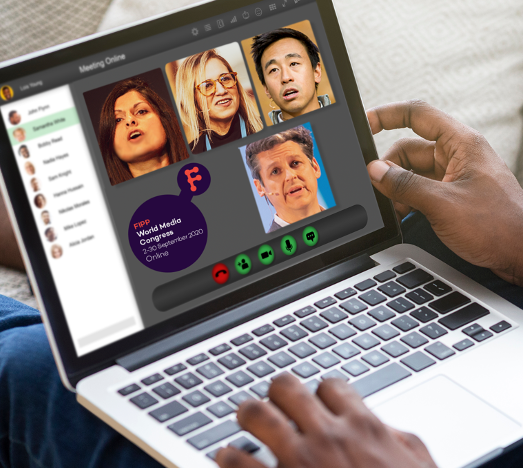
“An excellent way to think of this”, said Heyl, “is having the choice of watching a TV programme live or on demand. For example, if an attendee in Japan misses a session at, say, 15:45 UK time, they will still get access to the recording.”
Virtual formats, explained Heyl, also solves the problem of some top international speakers not being available on specific dates.
“Live sessions are obviously better because it brings the audience in on the conversation through Q&As and other engagement tools. However, where speakers are not available for September dates, they can be pre-recorded, and the content still made available to attendees.”
Last but not least, it offers the opportunity for attendees to network with one another in break-out rooms, or book one-to-one meetings using our Deal Room software. “When it comes to interactivity,” Heyl said, “it has been interesting to see on FIPP’s webinars how much more forthcoming attendees are with comments and questions to the speaker than at physical events, where shyness always appear to be a bit of a factor when you ask for questions.”
Value proposition
Heyl said while the value proposition for both participants and sponsors of a virtual event is different from a physical event, it is not of lower value.
“Physical events have its obvious merits, but virtual events have their own,” he pointed out. For example:
- The multiple touch points you can create online
- Breaking down the programme into more consumable chunks, spread out over a longer period of time
- The chance to easily offer breakout rooms for topical networking
- The choice of whether to watch something live or on-demand
- The greater inclination to interact online with ‘strangers’ than in real life.
- The opportunity to keep a commercial proposition open for longer
- The data that is instantly available to refine quality and offer feedback on-the-go
- The ability to offer sponsors product demos and lead generation
- The opportunity to do more post event
- In-depth reports and videos
- Keeping our Deal Room platform open for longer to network and meet.
“Take into account participants will have no travel and accommodation cost, the participation footprint could actually be very large,” added Heyl.
More about the FIPP Congress
Amy Thompson, VP of the Fitness Group, Active Interest Media, USA; Adrian Newton, Events and Commercial Director, New Scientist, UK; and Mike Hay, President, Ringier Trade Media, Hong Kong will be part of a panel discussion about events in a time of severe challenges. Click here to see the full list of speakers. Click here to see the agenda. Click here to sign up.
This article is an extract from FIPP’s report Publishing during a pandemic: Emerging from the Covid-19 crisis (June 2020 update). You can download the report here.
Click here for the May 2020 edition of the report, which looks at the immediate effects of the Covid-19 crisis on the media industry.
Click here for the August 2020 edition, which sheds light on early lessons learnt and how publishing might look in the future.

